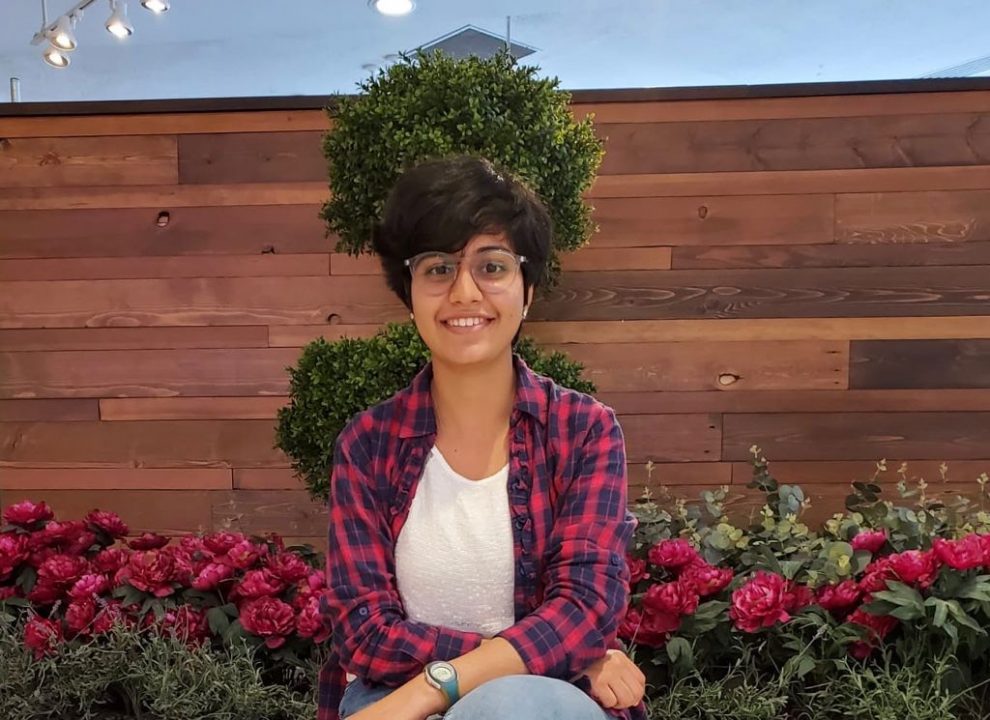
About Abhisha
I like to try and immerse myself in new disciplines and cross-disciplinary collaborations. Being a Neuroscience major student, my main research interest is in the field of translational medicine, and molecular and cellular neuroscience. I completed Alberta Innovates Summer studentship in the Department of Medicine with Dr. Nadia Jahroudi at the University of Alberta during Summer2020 and coauthored my first publication as a first author. As multiple new research fields are emerging in collaboration with medicine such as medical physics, medical geoscience, Metallomics, I decided to give a try to cross-disciplinary internship even though being unsure about what I can contribute. After meeting Dr. Leybourne and learning about the potential project, I realized that it’s a great fit for me as I will not only be utilizing my medical knowledge but will also develop new research techniques and data analysis skills of Geoscience, which I can potentially benefit from, and so I applied.
Project: Development of novel techniques in analyzing airborne particulates and low-background in support of astroparticle physics.
For our study we reviewed large population-based studies of uranium mining, processing and enrichment workers to understand the health impact of occupational and environmental exposure to uranium; and analyzed dust samples from copper mines in Australia (some uranium is also recovered as a by-product with copper, as at Olympic Dam mine in Australia) to determine Uranium concentration and its isotopic ratios.
“I was astonished by the fact that physics has a role to play in every advancement, cutting-edge technology and every discipline. This internship really helped me understand the concepts of astroparticle physics and geoscience.”
Abhisha’s CDI Experience
As I was doing a cross-disciplinary internship under the supervision of Dr. Matthew Leybourne in the Geoscience lab, I explored medical geoscience which has sparked my new interest in “Metallomics” — a new scientific field to integrate the research field related to biometals – which has the potential to propose new non-invasive diagnostic tools for various cancers and diseases from metal isotope signatures. During this academic year, I will work on my undergrad thesis project to determine — how diverse is the microglia (a type of glial cells in the brain) respond to brain injury, and how domicroglia change during remyelination in the brain. I would like to conduct interdisciplinary research in the field of proteomics and neuroscience, such as the one NASA is currently working on (not to mention which is my dream project) to understand how radium, deposited in the brain, releases high-LET alpha particles – the only human analogue, though limited, for high energy, high-Z particles (galactic cosmic rays) travelling through space that might affect astronauts on Mars missions.
"My favourite experience from this internship was participating in our weekly project discussion and collaboration meetings and discussing new ideas with industrial hygienists and Metallomics experts."
Participating in a Cross-disciplinary internship was a great learning opportunity for me. I learned how to connect ideas from different disciplines, how to troubleshoot when you cannot work on what you decided, and how to adapt to a new research environment apart from new techniques for data collection and operating new instruments. Being a premedical student, I am passionate about public health. Through this internship, I was exposed to multiple disciplines — astroparticle physics, geoscience, and public health too (as I collaborated with an industrial hygienist from Germany). Overall, it was an extremely valuable experience for me.
“I would like to inform future cross-disciplinary interns that it may seem daunting initially to transit from your expertise and dive into a new discipline but it’s really worth taking the risk and immerse yourself in new research as it will immensely help you in this inter- and the cross-disciplinary era of research.”
